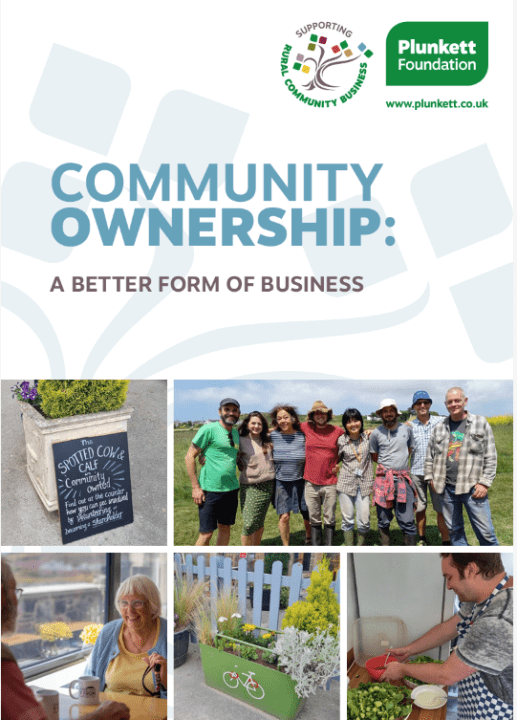A report from Plunkett Foundation says community businesses “continue to put people first”, despite the financial pressures from inflation and the cost of living crisis.
The Community Ownership: A Better Form of Business report says that although one in three businesses report concerns over the next 12 months, over 50% of Plunkett’s network have awarded cost of living pay rises to staff.
Plunkett, the charity suppporting the community buiness sector, added that 64% of community businesses with tenants offered rent reductions and extensions, and two thirds of businesses have absorbed price rises to maintain affordability of products and services for their communities.
The report shows that the sector grew by 3% in 2022, with 27 new businesses opening. The total number of trading community business, at 31 December 2022, stood at 768 – with community-owned pubs by far the fastest growing business type.
Of those surveyed, 58% of businesses state that they believe they are more resilient due to being a community-owned business. However, the report does indicate short-term concern for the sector, with the majority businesses stating that rising wholesale prices and overhead costs, coupled with lower customer spend will hurt their turnover and profitability in the next 12 months.

The long-term success rate for community businesses supported by Plunkett stands at 92%, which, it says, “is a testament to the thousands of volunteers who are the heart of the sector“.
Chris Cowcher, head of policy and communications at Plunkett said: “We know that times are hard for all businesses right now, but to see what the community-ownership sector continues to achieve is nothing short of remarkable. The businesses are not immune to the challenges posed by inflationary cost pressures, and Plunkett continues to offer access to free support to all community businesses via our universal service.
Related: Future Economy Alliance poll finds public want a change to purpose-led business
“However, to see in our research, such a commitment to social impact and supporting their community in a time of crisis is just amazing. We applaud every single person involved with the growing community business movement.”
Looking to the future and motivated by a mixture of reducing the operating costs and a commitment to climate action, the research has also shown strong support among community businesses for installing energy saving measures (ESMs) and making improvements to business premises. 85% of businesses surveyed have either installed or are currently considering installing ESMs. This, says Plunkett, would make their operations greener and reduce running costs in the longer-term.
As a further commitment to climate action, 72% of businesses surveyed state that they were proactively ‘sourcing locally’ for goods and products as part of their operation, and 44% are taking action to reduce their waste – for instance, by reducing use of packaging.